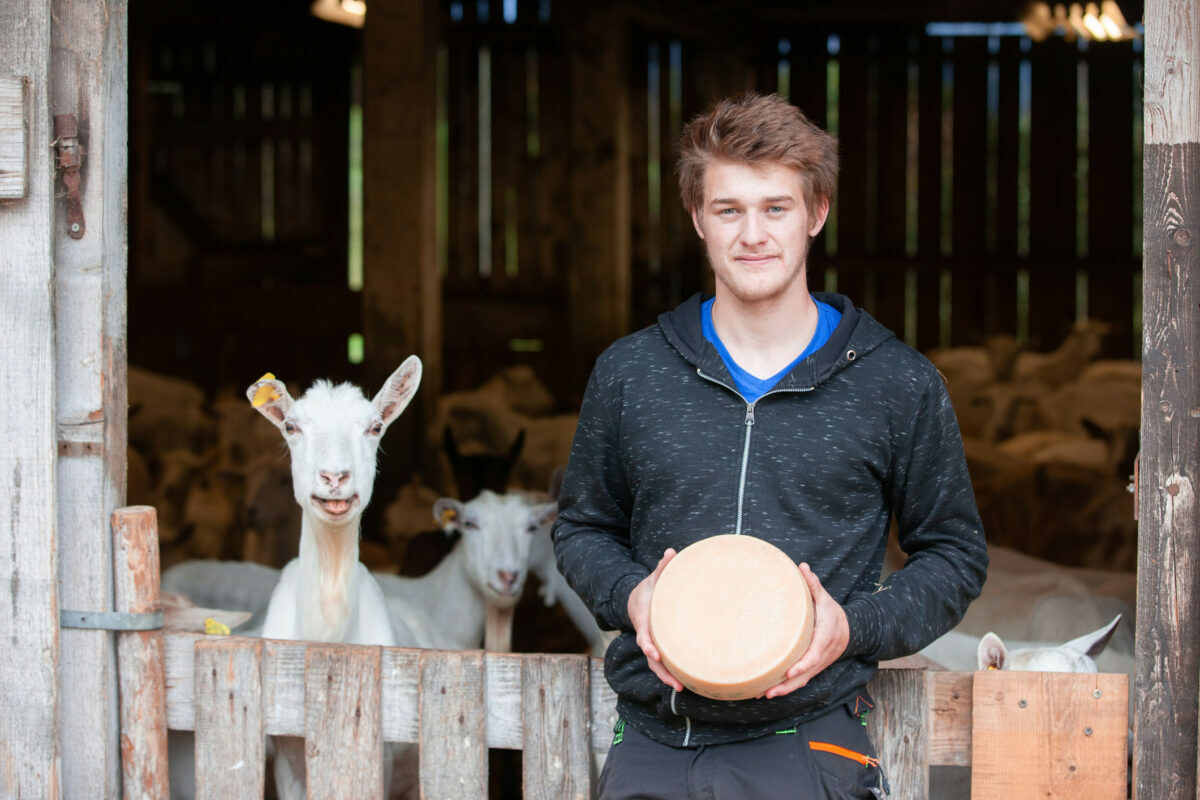Green Jobs: what does a Project Coordinator do?

It’s a very common goal to want to leave the world a better place than how it was when you entered it. This desire is what motivates people to be kind to one another, do good deeds and look out for those around them. For those who want to take it a step further, a career working in a charity or other non-governmental organisation (NGO) is a popular choice.
This career path allows people to make a living by furthering a cause, usually one that is personally important to them or their community. Within food, there many different types of organisations striving to make the world a better place – from food banks, to farming charities, educational trusts, global nutrition organisations and sustainability groups. Additionally, these groups range from local charities, to much larger international organisations.
Within each of these charities will be a number of different programmes, and it is the job of a Project Coordinator to ensure their smooth running. Somewhat like a Project Manager, a Project Coordinator will often have one specific initiative for which they are responsible.
Rafa Ahmed is Project Coordinator at Birmingham, London, Manchester and Bradford-based food bank charity Feedo Needo. She says: “The main aim of my role is not only to oversee our operations but to also build partnerships with as many likeminded community and business organisations in order to expand our services on a wider scale and develop new methods of giving back to the community through organising events and fundraisers.”
What are the responsibilities?
- Planning, brainstorming, and coordinating programme ideas with a team
- Pitching ideas to stakeholders
- Creating and maintain programme records, reports, presentations, and proposals
- Assisting with planning and coordination of programmes and their activities
- Working to keep programmes on schedule and within budget
- Supporting programme growth and improvement
- Coordinating programme communications
- Managing staff working on the programme
- Brainstorming and supporting fundraising opportunities
- Managing yearly budgets
Who might your employers be?
NGOs working in food are as diverse as the food industry itself. Almost every branch of the sector has its own organisations – from labour groups like the National Farmers’ Union and the Bakers, Food and Allied Workers Union, to food security charities like the Trussell Trust and FareShare; to sustainability-minded organisations like Wrap and Sustain.
Each of these groups, and the myriad others like them, will have people working to coordinate and manage their initiatives and projects. This means there is almost guaranteed to be a group that speaks to your personal interests within food.
What qualifications do you need?
There are no specific Project Coordinator degrees to pursue at university level, but there are plenty of courses which can prepare you for life in an NGO. These are some courses which are planned with the third sector in mind:
- Charity Management MA – St Mary’s University London
- Leadership in Communities BSc – London Metropolitan University
- Philanthropic Studies MA – University of Kent
With a mix of administration, event planning, people managing and general business skills required, studying a subject which isn’t specifically geared towards charity work can also stand you in good stead for work as a Project Coordinator. Why not check out courses like:
- Sociology BA – Newcastle University
- Business Administration BA – University of Hertfordshire
- Philosophy BA – University of Nottingham
Of course, not all careers in the third sector begin with a university degree. There are just as many ways to get into NGO work without one. The most obvious, though perhaps most laborious, is to begin working as a volunteer at a given organisation, and working your way up to a paid position. However other avenues include:
Reflecting on her own pathway into the role of Project Coordinator, Rafa says: “I graduated from university with a degree in Social Sciences, which led me to choosing a career in the non-profit sector, as I had previously researched on issues relating to social inequalities between different socio-economic classes and the effects of government-led initiatives.”
Like many others working within the charity sector, Rafa boosted her experience and employability by regularly volunteering at organisations like Marie Curie and Penny Appeal. She says: “Many third sector roles will require some form of experience or background in charity work, even if it just volunteering for smaller charity events or fundraising as long as you can show a dedication to helping vulnerable members of society/ causes through your own initiative.”
What is the salary like?
According to Talent.com, the median salary for a Project Coordinator is around £29,000. Most entry level positions start around £24,000, while the higher end of the scale usually tops out at around £36,000.
Where will you be working?
Most behind-the-scenes charity operations happen in an office, however by working as a Project Coordinator, you’re likely to have to do a bit of travel every once in a while. It will be common to work within the community or with the people you’re trying to help at times, and depending on the leaning of the charity, this might mean trips abroad, to youth centres, community kitchens, schools or elsewhere.
Rafa says her day can be hugely varied, and is split between the office – where virtual and in-person meetings are the norm – and the food bank she works with. “The food bank branch where I am based from operates via a cafe´ which is open for all free of charge on a daily basis,” she explains. “This requires a lot of attention as I will need to head to the cafe´ and supervise my group of volunteers who look after the cafe´ and its service users more closely, along with regular health and safety checks.”
What is career progression like?
Many roles within NGOs are conducive to progression. Most people start out in relatively junior positions, and move up from there. In terms of Project Coordinators, you might start out as a Project Assistant, before moving up to Coordinator role. From there, you could become a Project Manager for one or more different initiatives within an organisation. One of the highest-ranking roles of this ilk is Programme or Project Director – which will see you working across all of your NGO’s projects.
Is there demand for this role?
With an increasing amount of pressure on both global and local food systems, there has perhaps never been a time where NGO work is more needed in this sector. According to a 2021 survey, 57% of charities reported an increase in demands for their services. With no projected end in sight for things like the cost-of-living crisis and climate change, supporting work like this will continue to be relevant for some time to come.
For more jobs in the food industry, visit Food Matters Live’s Preparing for a career in food








